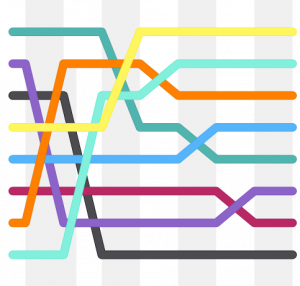3 What are Algorithms?
Overview
“Everyone who has accessed the internet has experienced the personalizing actions of algorithms, whether they realize it or not. These invisible lines of code can track our interactions, trying to game our consumer habits and political leanings to determine what ads, news stories and information we see….As tracking practices have become more common and advanced, it has become urgent to understand how these computer programs work and have widespread impact. How do students understand the hidden filters that influence what they see and learn, and shape what they think and who they are?” (Head et al. 13)

Algorithms are step-by-step instructions that computers follow to complete tasks, solve problems, and make automated decisions. They use data to make predictions about people, including their preferences, attributes, and behaviors. Algorithms power nearly everything we see online, including search engines, social media, video games, online dating, and smartphone apps. They are used to shape and filter content on the platforms many of us interact with daily, such as Google, YouTube, Instagram, Netflix, Facebook, Amazon, Twitter, and Spotify. For example, algorithms determine which websites you see first in your Google search results, which posts you see on Facebook, and which videos YouTube “recommends” and autoplays for you.
Data & Algorithms
The following TED Talk [9:44] with computer scientist Jennifer Golbeck provides a clear explanation of how data is collected on social media sites, and how this can be used to create algorithms that predict attributes like political affiliation, intelligence, sexual orientation, relationship strength, and even drug/alcohol usage.
Note: Turn on closed captions with the subtitles button or use the interactive text transcript if you prefer to read.
Sources
Head, Alison J., Barbara Fister, and Margy MacMillan. “Information Literacy in the Age of Algorithms.” Project Information Literacy, 15 Jan. 2020. Licensed under CC BY-NC-SA 4.0
Image: “Shell Sorting Algorithm Color Bars” by Balu Ertl is licensed under CC BY 4.0
“Your Social Media ‘Likes” Expose More Than You Think: Jennifer Golbeck” by TED is licensed under CC BY-NC-ND 4.0
Step-by-step instructions that computers follow to complete tasks, solve problems, and make automated decisions. Algorithms use data to make predictions about people, including their preferences, attributes, and behaviors. They power nearly everything we see online and are used to shape and filter content on the platforms we interact with daily.
